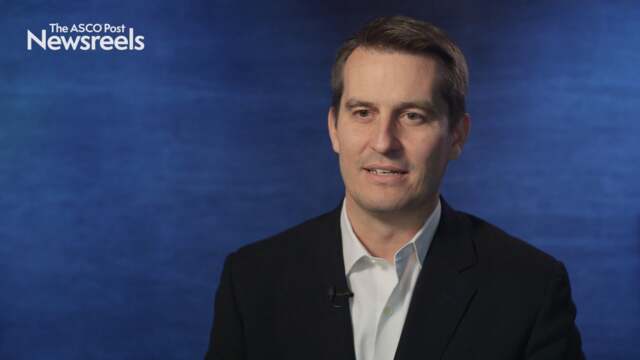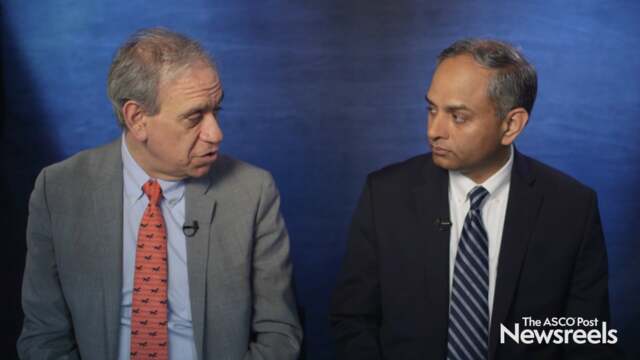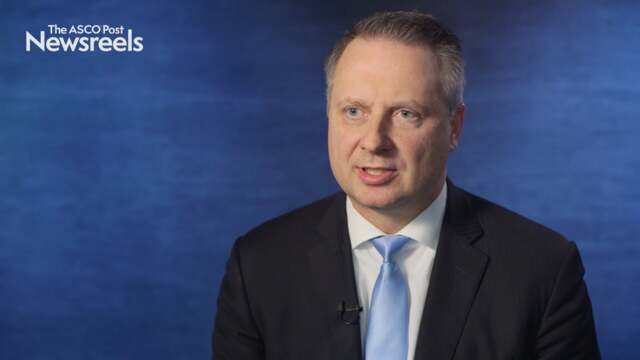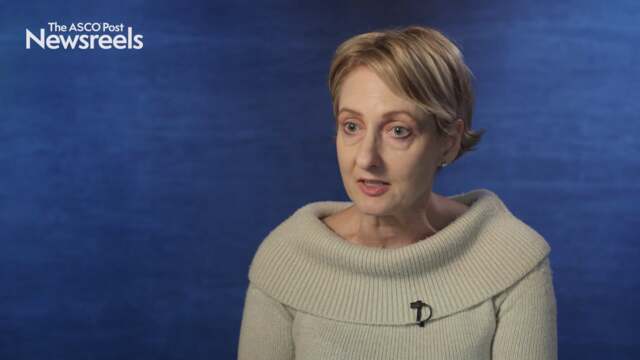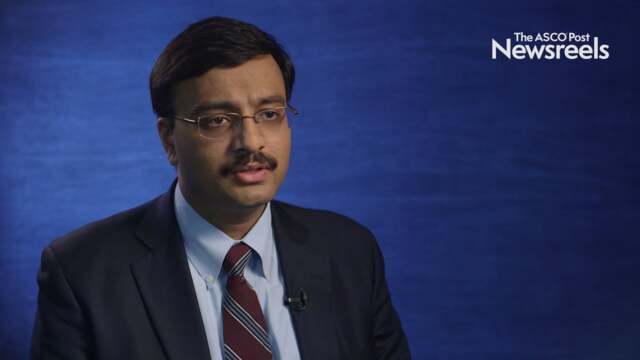Jia Ruan, MD, on Mantle Cell Lymphoma: Study Results on Lenalidomide and Rituximab
2017 ASH Annual Meeting
Jia Ruan, MD, of NewYork-Presbyterian/Weill Cornell Medical Center, discusses a 5-year follow-up analysis that showed lenalidomide and rituximab as initial treatment achieved a high rate of complete responses and MRD negativity with durable remissions beyond 4 years (Abstract 154).
Brian T. Hill, MD, PhD, of the Cleveland Clinic, discusses study findings that showed consolidation with autologous hematopoietic cell transplant in the first remission improves overall survival in patients younger than age 65 (Abstract 341).
Andrew D. Zelenetz, MD, PhD, of Memorial Sloan Kettering Cancer Center, and Sattva S. Neelapu, MD, of The University of Texas MD Anderson Cancer Center, discuss long-term study findings on axicabtagene ciloleucel in patients with refractory aggressive non-Hodgkin lymphoma (Abstract 578).
Andrew M. Evens, DO, of Tufts University, discusses findings on the effectiveness of DLBCL-based therapy for patients whose disease fell between diffuse large B-cell and classical Hodgkin lymphoma (Abstract 375).
Laurie H. Sehn, MD, MPH, of the British Columbia Cancer Agency and University of British Columbia, discusses long-term results of PET-guided radiation therapy in patients with advanced-stage diffuse large B-cell lymphoma treated with R-CHOP (Abstract 823).
Nitin Jain, MD, of The University of Texas MD Anderson Cancer Center, discusses phase II study results on combined venetoclax and ibrutinib for patients with previously untreated high-risk and relapsed/refractory chronic lymphocytic leukemia (Abstract 429).
